
[ad_1]
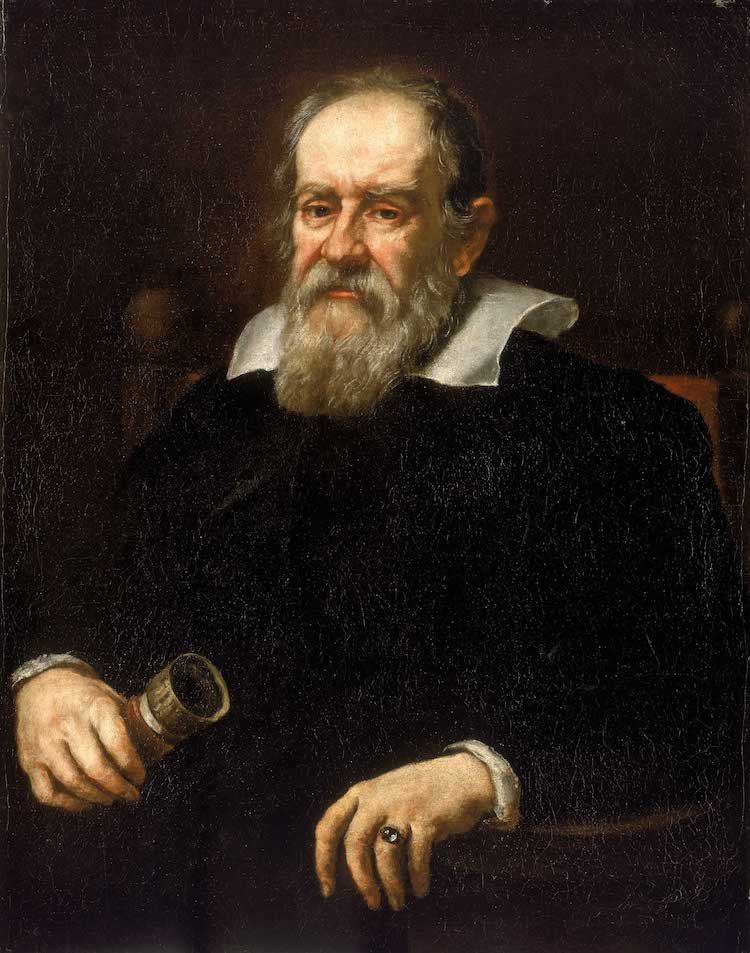
“Portrait of Galileo” by Justus Sustermans (Picture: Public area, by using Wikimedia Commons)
Whilst you may possibly have heard the title Galileo, do you know why he is so significant? This Italian astronomer, physicist, mathematician, and engineer is much more than a lyric in Queen’s “Bohemian Rhapsody.” He’s just one of the most vital scientific minds in history and with no him, it may well have taken us substantially for a longer period to find out about our universe and the environment around us.
Born in Pisa in 1564, Galileo Galilei is known to the globe for modifying how science is considered. A robust proponent of the scientific method, he advocated for carrying out research to assist scientific theories. And, importantly, he was a major advocate for how we perspective the stars. In an age when it was thought that the Earth was the middle of the universe, he used his own observations to recommend that it was actually the Sun that we revolved all-around. Although this would get him into warm drinking water with the Catholic Church, these concepts, alongside with myriad innovations and educational writings, would cement his legacy afterwards on.
We’re exploring a little bit extra about Galileo and sharing 6 details about this genius. From his early instruction to his use of the telescope to his unlucky punishments by the Inquisition, his lifestyle is stuffed with just one thrilling minute right after the next.
Listed here are 6 details about Galileo that display what an extraordinary everyday living this scientific genius lived.
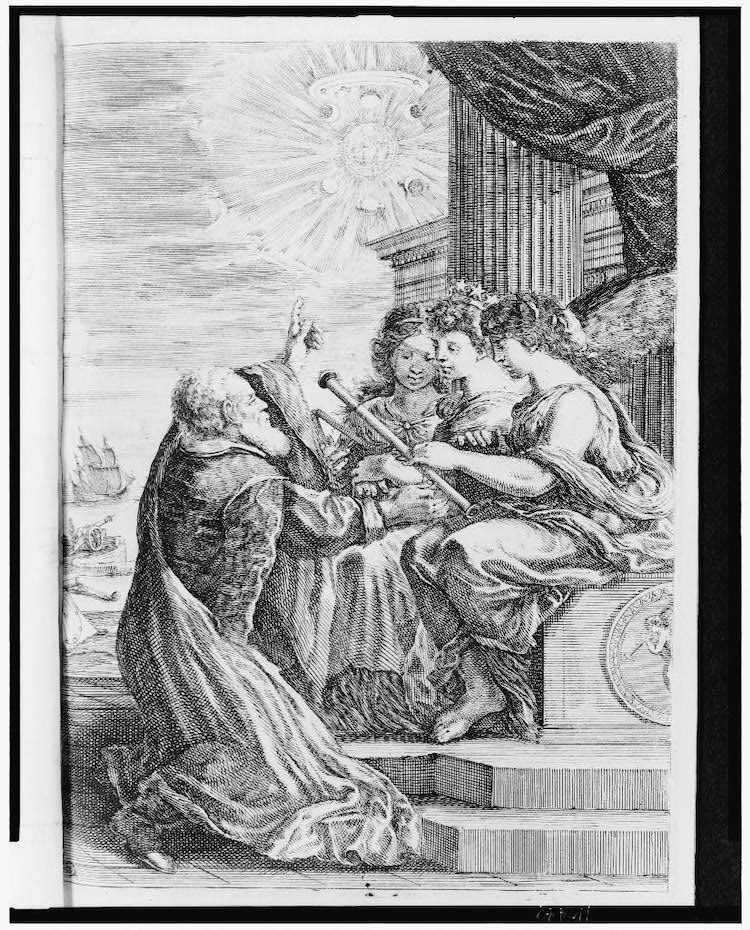
Galileo Giving His Telescope to Three Women of all ages, released in “The tradition of technologies: Landmarks of Western technologies,” (Photo: Library of Congress)
Galileo hardly ever finished college.
Though Galileo is one particular of the terrific thinkers of his generation—and his operate continues to be relevant—he never ever in fact concluded faculty. Born in Pisa, he initial considered getting to be a priest but enrolled in the University of Pisa to review drugs at the urging of his father. Even though there, he grew to become fascinated by arithmetic and convinced his father to allow for him to analyze mathematics and all-natural philosophy. Even so, he left school in 1585 with no obtaining graduated.
In spite of his standing as a dropout, his publications and inventions attained him a stellar track record. In actuality, he utilized to develop into the chair of arithmetic at the University of Pisa and was granted the position in 1589. He would continue to be there for a few many years right until his controversial stance from Aristotle’s philosophies about motion caused his deal not to be renewed. However, that failed to end him. He just moved on and became the chair of arithmetic at the University of Padua, a posture that he held until 1610.
He challenged preferred ideas on astronomy and physics.
Throughout Galileo’s time, the reigning philosophies in physics and astronomy had been centered on the perform of Greek philosophers. Aristotle’s get the job done was greatly accepted by lecturers, but Galileo dared to challenge people notions. For occasion, Aristotle taught that heavier objects fell more quickly than lighter objects in proportion to their fat. Galileo debunked that notion by dropping balls off the Leaning Tower of Pisa. Galileo argued that, barring any forces of resistance, the time of an object’s descent is unbiased of its mass. Whilst he was not the initial to argue this notion, Galileo’s status intended that his denial of Aristotle’s theory lent more bodyweight to the thought that it was mistaken.
But this was not the only time that he undermined Aristotle’s teachings, which ended up also well-liked with the Catholic Church. By earning advancements to the telescope, he was equipped to make incredible observations of the night time sky. This incorporated viewing Venus. Galileo essentially noticed that the earth went by means of phases related to the Moon. So, he concluded, Venus will have to revolve all-around the Sun. At a time when Earth was believed to be the centre of the universe, this was a dilemma. Even though that observation could not appear to be like considerably to us now, they went versus Aristotle’s strategy that the heavens ended up ideal and remained unchanged and that Earth was a corrupt land. That notion was quite considerably embraced by the Catholic Church, which was not really pleased about Galileo’s get the job done.
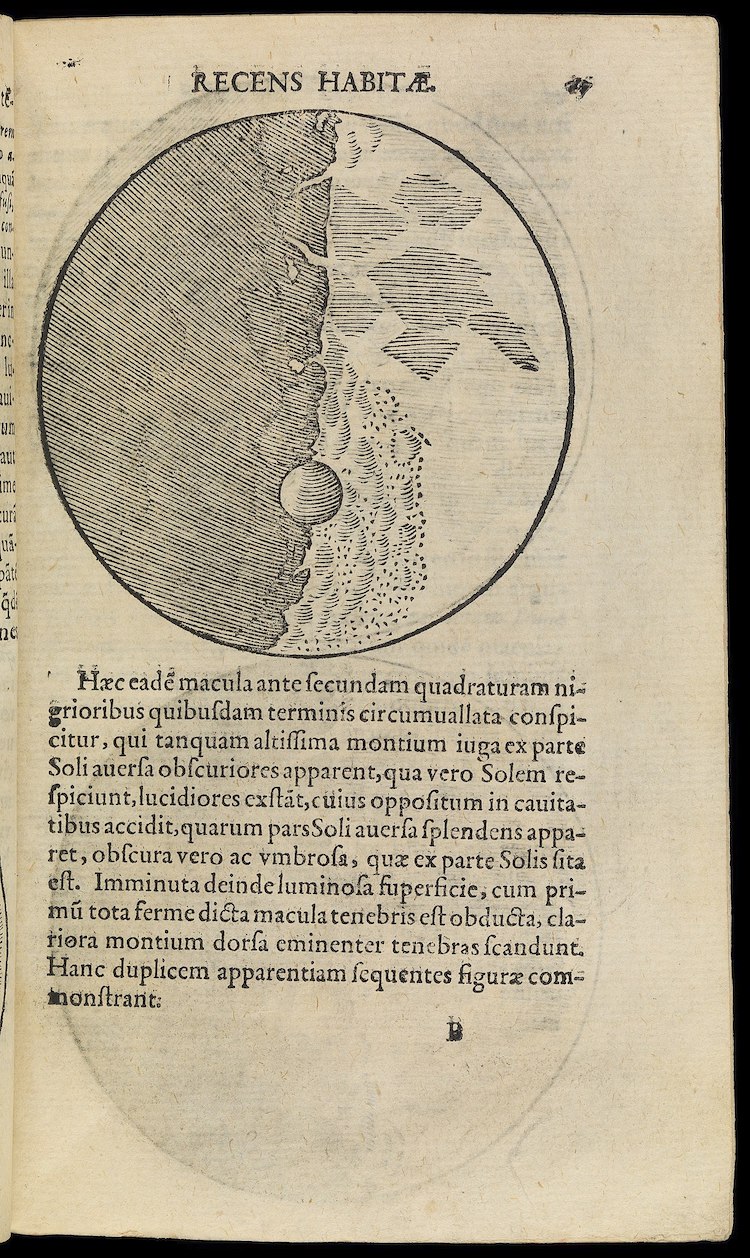
Illustration of the Moon in Galileo’s “Sidereus Nuncius,” released in 1610. (Photograph: General public area by means of Wikipedia)
Galileo designed landmark observations about the Moon.
As pointed out, Galileo designed fantastic advancements to the telescope, which had been invented in the Netherlands in the early 1600s. While numerous folks incorrectly feel that Galileo invented the telescope himself, he was truly the to start with to use it to notice celestial bodies. He was capable to do that mainly because, via demo and mistake, he at some point created a telescope in 1609 that could enlarge up to 30x.
He utilised the telescope to discern lots of celestial bodies, such as the Moon. Up till this issue, Aristotle’s perspective that the Moon was correctly easy was accepted as true. But Galileo truly noticed the craters on the Moon and produced topographical charts estimating the heights of the Moon’s mountains. Galileo also drew out the phases of the Moon. All over again, these concrete observations brought on conflict with acknowledged beliefs in the 17th century.
He learned Jupiter’s Moons
Immediately after his first operate on the Moon, Galileo applied his telescope to make numerous other discoveries. He noticed equally Saturn and Neptune, noticed sunspots, and identified many new stars that one particular could not see with the naked eye. One particular of his biggest discoveries happened in 1610 when he noticed what he described as “three fastened stars, completely invisible by their smallness” following to Jupiter. As he ongoing to observe them in the following days, he saw a fourth object and he noted that a single has disappeared. This rapidly brought about him to conclude that they have been orbiting the earth.
What he’d learned were being Jupiter’s 4 largest moons. Now known as the Galilean moons, they are named Io, Ganymede, Europa, and Callisto. The discovery revolutionized astronomy at the time due to the fact, as soon as again, they pointed to flaws in Aristotelian cosmology. In accordance to Aristotle’s teachings, planets shouldn’t have their very own orbiting bodies, but relatively orbit the Earth. The moment yet again, Galileo’s do the job pointed to significant challenges with the approved philosophy.
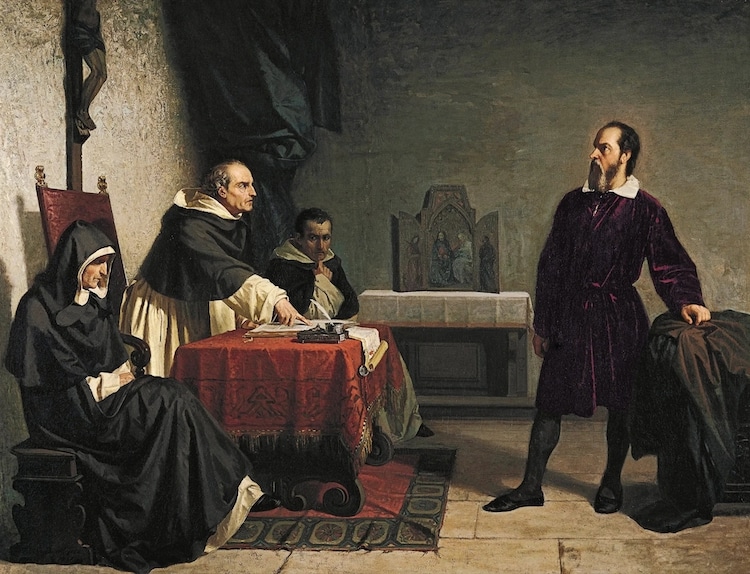
“Galileo experiencing the Roman Inquisition” by Cristiano Banti (1857). (Picture: Community domain by way of Wikipedia)
Galileo was experimented with by the Inquisition.
Though Galileo’s work has gained him a lasting legacy as a single of history’s wonderful thinkers, not everyone all through his have time admired his get the job done. Science and religion had been deeply intertwined in Galileo’s day and his work debunking Aristotle’s theories made him deeply unpopular with some tutorial colleagues and, most certainly, the Catholic Church.
His continued observations demonstrating that the Copernican program, wherever the Sun—not Earth—is the heart of the universe, caused important waves. The Catholic Church’s basis for insisting that the Earth was the centre of the universe was tied to Biblical passages stating that the Earth was fixed. Galileo argued in letters to his student that the Bible should really be taken as the authority on religion, but that science must rule the day when it came to astronomy.
Finally, his function experienced penalties when Father Niccolò Lorini submitted his beliefs to the Inquisition in 1615. His declare was that Galileo was making an attempt to reinterpret the Bible and that this was versus the Council of Trent. Galileo went to protect himself, while the other side seemed at scientific theories versus heliocentrism as proof that he was completely wrong. In the stop, the fee declared that heliocentrism was “foolish and absurd in philosophy, and formally heretical.” He was advised to abandon any suggestions that put the Solar at the centre of the universe, which he did for the future decade.
Apparently, his downfall came just after his trustworthy pal Cardinal Maffeo Barberini turned Pope Urban VIII in 1623. He questioned Galileo to publish a e book providing arguments for and from heliocentrism. The ebook, Dialogue Regarding the Two Main Globe Methods, was then revealed with authorization from the Pope and the Inquisition but triggered issues anyway. The character in the guide that defends the Aristotlean procedure is named Simplico, which interprets to “simpleton,” and generally sounds silly. This greatly angered the church, which brought Galileo in front of the Inquisition once again in 1633.
This time, it did not finish effectively. Even though he experienced gotten absent with a warning the to start with time about, this time he was discovered “vehemently suspect of heresy.” He was set less than household arrest, and he remained there for the relaxation of his lifestyle. His e-book was formally banned. Nevertheless he continued to receive guests at dwelling and even developed one particular of his greatest is effective, Two New Researchers, he carried out his punishment till his death in 1642.
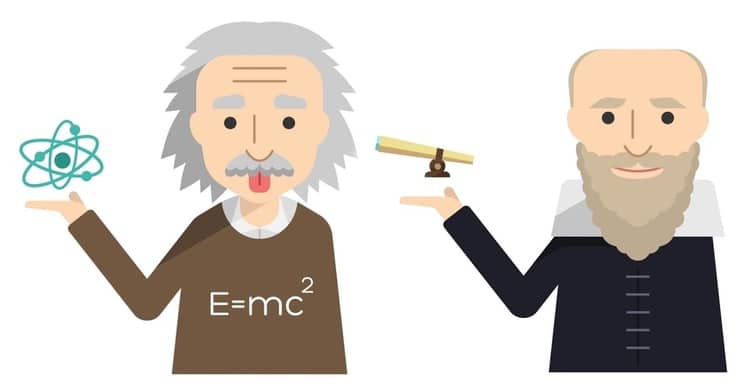
Photograph: patchpatchara.hotmail.com/DepositPhotos
Albert Einstein was an admirer.
Of training course, we now know how unjust Galileo’s punishment was and as occasions have transformed, the scientific group has acknowledged the value of his do the job. In reality, just one fashionable genius—Albert Einstein—recognized the great importance of his do the job. Einstein known as Galileo the “father of present day physics” and modern day science.
The early perform that Galileo executed with pendulums was the precursor to mechanics afterwards produced by Sir Isaac Newton. And he even presented a essential basic principle of relativity that would supply the basis for Newton’s rules of movement and, later, Einstein’s individual concept of relativity.
Einstein’s complete quotation on Galileo and his importance to science reads, “All expertise of reality starts from practical experience and ends in it. Propositions arrived at by purely reasonable means are entirely empty as regards fact. Due to the fact Galileo saw this, and especially due to the fact he drummed it into the scientific earth, he is the father of present day physics–indeed, of modern-day science altogether.”
Connected Content articles:
15 Carl Sagan Estimates to Aid Unravel the Mysteries of the Universe
Who Was Marie Curie? Master Much more About This Pioneering Nobel Prize Winner
Meet up with the Harvard Computers, the Undervalued Women Who Mapped 400,000 Stars
Who Was Pierre de Fermat? The Mathematician Who Remaining Guiding a Mysterious “Last Theorem”
[ad_2]
Resource link






Leave a Reply